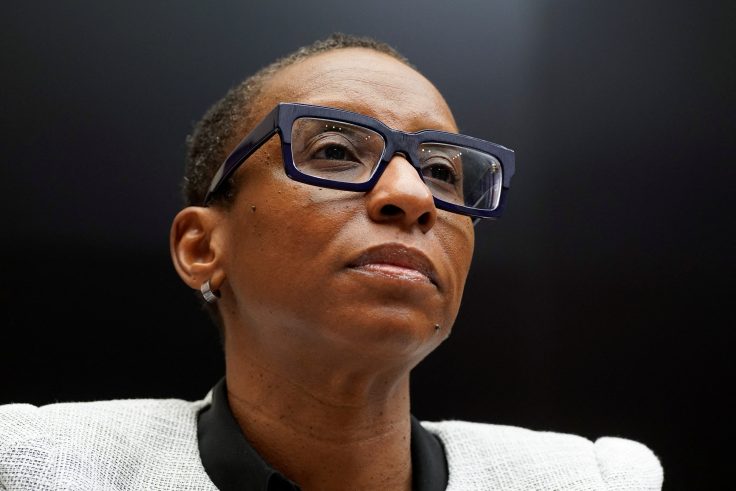Harvard University's former president slammed her critics Wednesday in a New York Times op-ed in which she extolled her scholarship and said she would bring "courage" as she returns to being a professor.
"My hope is that by stepping down I will deny demagogues the opportunity to further weaponize my presidency in their campaign to undermine the ideals animating Harvard since its founding: excellence, openness, independence, truth," wrote former Harvard president Claudine Gay. The essay came a day after she resigned from her position amid controversies over her response to campus anti-Semitism and allegations of plagiarism in her academic work.
Gay in her essay defended her research, writing that few critics "commented on the substance of my scholarship" and that she did not anticipate "needing to defend decades-old and broadly respected research."
"Throughout this work, I asked questions that had not been asked, used then-cutting-edge quantitative research methods and established a new understanding of representation in American politics," she wrote. "This work was published in the nation's top political science journals and spawned important research by other scholars." She added that the "past several weeks have laid waste to truth."
Gay vowed to bring "courage" as she returns to a professorship at Harvard.
"As I return to teaching and scholarship," she wrote, "I will continue to champion access and opportunity, and I will bring to my work the virtue I discussed in the speech I delivered at my presidential inauguration: courage. Because it is courage that has buoyed me throughout my career and it is courage that is needed to stand up to those who seek to undermine what makes universities unique in American life."
Gay acknowledged that she has "made mistakes" since Hamas's Oct. 7 attacks on Israel, writing that her initial response to the attacks did not condemn the terror group forcefully enough. She described her widely panned December congressional testimony, however, as falling into "a well-laid trap."
She also admitted that she had "duplicated other scholars' language, without proper attribution," adding that she requested corrections to the articles, in a manner "consistent with how I have seen similar faculty cases handled at Harvard." Still, she framed her piece as offering "a few words of warning."
"The campaign against me was about more than one university and one leader," Gay wrote. "This was merely a single skirmish in a broader war to unravel public faith in pillars of American society. Campaigns of this kind often start with attacks on education and expertise, because these are the tools that best equip communities to see through propaganda."
Times opinion editor Kathleen Kingsbury wrote in her newsletter that Gay's claim about the controversy being bigger than her was the most interesting part of the essay and the main reason the paper published the op-ed. Kingsbury added, however, that she found others' opinions more compelling.
"As Opinion editor, I rarely express my own views publicly on guest essays we publish," Kingsbury wrote, "but here it's worth saying that, in the current conversation around Harvard, I've been more drawn to arguments made by others."
Gay's Tuesday resignation and subsequent essay come almost a month after the congressional hearing in which she and the presidents of two other Ivy League universities did not give clear answers on whether calling for the genocide of Jews violates their schools' codes of conduct.
That hearing resulted in the resignation of University of Pennsylvania president Liz Magill. Gay in the following weeks faced allegations of plagiarism that affected 8 of her 17 published works. The Washington Free Beacon first reported many of those allegations.
